
The Seminars
Videos of presentations from seminars sponsored by CRARS. Click anywhere in the description to be taken to the appropriate page.
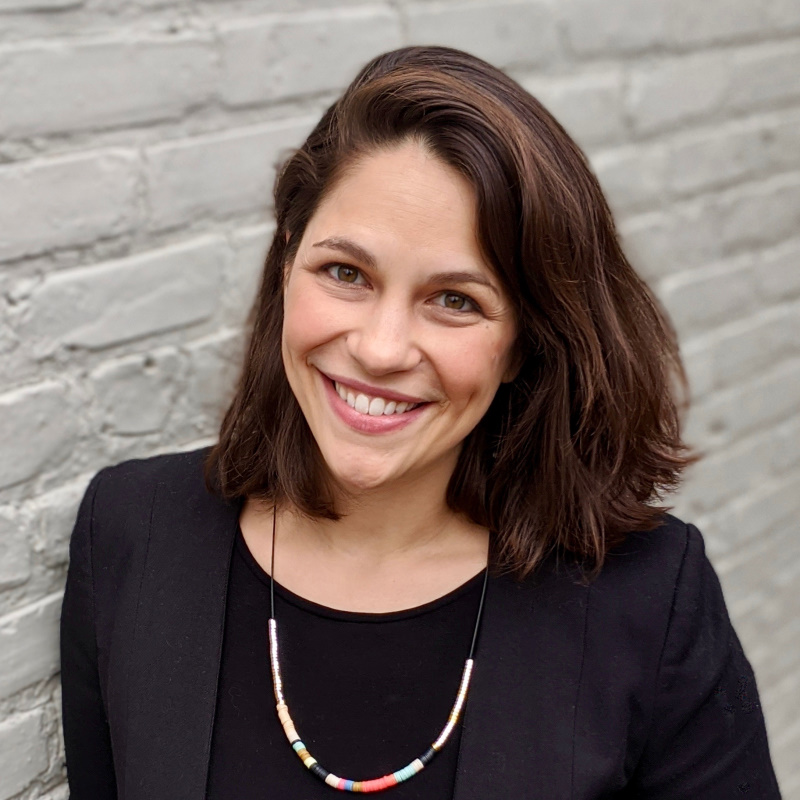 Eve Turow-Paul is an author and global thought leader focused on the intersection of food culture, the Digital age, and well-being. She started her investigation into the food choices and buying habits of Millennials and Gen Z-ers because they represent 51% of the global population, and what they do and why is important for the world in terms of climate change and regenerative agriculture going forward into the future. But what she discovered turned out to be true for people of multiple generations as the Covid-19 pandemic and the impact of technology has affected us all. And the news is hopeful!
Eve Turow-Paul is an author and global thought leader focused on the intersection of food culture, the Digital age, and well-being. She started her investigation into the food choices and buying habits of Millennials and Gen Z-ers because they represent 51% of the global population, and what they do and why is important for the world in terms of climate change and regenerative agriculture going forward into the future. But what she discovered turned out to be true for people of multiple generations as the Covid-19 pandemic and the impact of technology has affected us all. And the news is hopeful!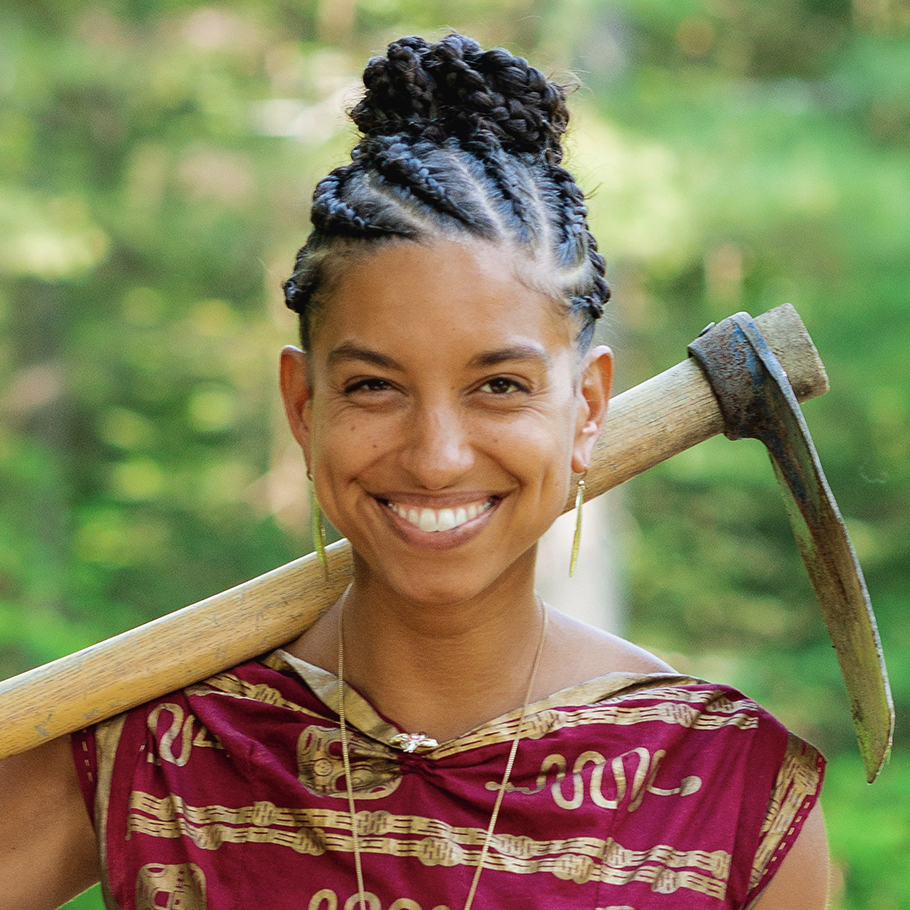 Leah Penniman was raised in Massachusetts and began farming as a teenager with The Food Project in Boston. Penniman holds an MA in Science Education and BA in Environmental Science and International Development from Clark University. Li has been farming since 1996 and teaching since 2002. She has worked at the Food Project, Farm School, Many Hands Organic Farm, Youth Grow and with farmers internationally in Ghana, Haiti, and Mexico. Li co-founded Soul Fire Farm in 2011 with the mission of ending racism and injustice in the food system and reclaiming the inherent right to belong to the earth and to have agency in the food system as Black and Brown people. In this presentation Penniman explores how the roots of regenerative agriculture extend back to how black and indigenous peoples farmed long ago. She also discusses how that legacy continued with the work of George Washington Carver and others since the end of slavery in the United States and what work lies ahead to heal disenfranchised peoples and their relationship to feeding themselves and their communities.
Leah Penniman was raised in Massachusetts and began farming as a teenager with The Food Project in Boston. Penniman holds an MA in Science Education and BA in Environmental Science and International Development from Clark University. Li has been farming since 1996 and teaching since 2002. She has worked at the Food Project, Farm School, Many Hands Organic Farm, Youth Grow and with farmers internationally in Ghana, Haiti, and Mexico. Li co-founded Soul Fire Farm in 2011 with the mission of ending racism and injustice in the food system and reclaiming the inherent right to belong to the earth and to have agency in the food system as Black and Brown people. In this presentation Penniman explores how the roots of regenerative agriculture extend back to how black and indigenous peoples farmed long ago. She also discusses how that legacy continued with the work of George Washington Carver and others since the end of slavery in the United States and what work lies ahead to heal disenfranchised peoples and their relationship to feeding themselves and their communities.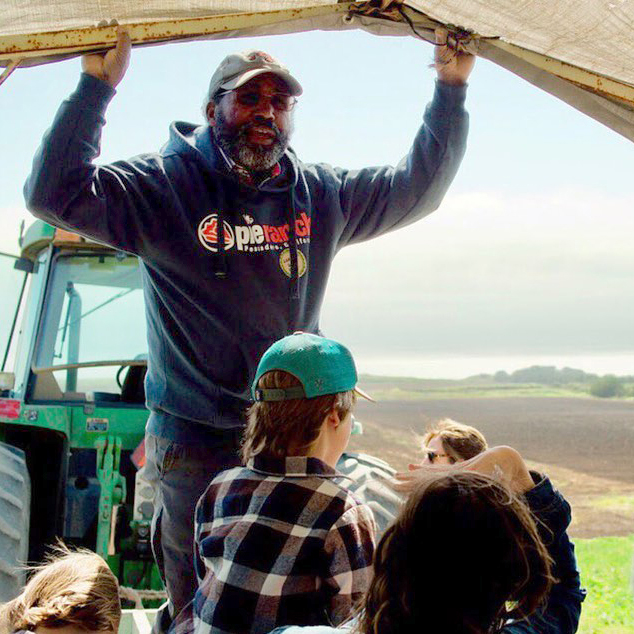 How can regenerative agriculture be proactive at this moment of consciousness in our society to diversify and become truly inclusive? Both Black Lives Matter and regenerative agriculture have swiftly become resonating movements with active and energized engagement from across society. What role does regenerative agriculture play in making our society healthy through robust diversity? Leonard Diggs, Director of Operations and Farming Education at Pie Ranch in Central California, seeks to address this topic and bridge the gap between cultural and soil diversity.
How can regenerative agriculture be proactive at this moment of consciousness in our society to diversify and become truly inclusive? Both Black Lives Matter and regenerative agriculture have swiftly become resonating movements with active and energized engagement from across society. What role does regenerative agriculture play in making our society healthy through robust diversity? Leonard Diggs, Director of Operations and Farming Education at Pie Ranch in Central California, seeks to address this topic and bridge the gap between cultural and soil diversity.
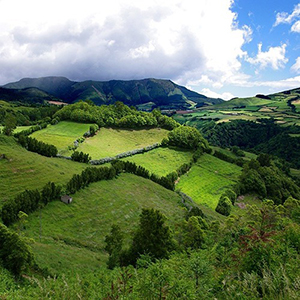 Speakers Dr. Jonathan Lundgren (Ecdysis Foundation & Blue Dasher Farms) and Ward & Rosie Burroughs (Burroughs Family Farms) discuss approaches to and outcomes of systems-level science conducted on regeneratively managed farms, along with the lessons learned through years of implementing regenerative practices on diverse operations.
Speakers Dr. Jonathan Lundgren (Ecdysis Foundation & Blue Dasher Farms) and Ward & Rosie Burroughs (Burroughs Family Farms) discuss approaches to and outcomes of systems-level science conducted on regeneratively managed farms, along with the lessons learned through years of implementing regenerative practices on diverse operations.
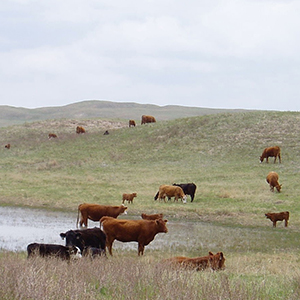 Rangelands are dynamic and extensive landscapes that often have multiple uses and/or management goals associated with them, in addition to crossing jurisdictional boundaries at the landscape or watershed scale, and connecting to or incorporating other ecotypes (e.g. forestlands, meadows, and riparian/wetland areas). This can result in complex scenarios with multiple stakeholders serving different and overlapping roles, such as decision-maker, funder, implementer, monitor, and in some cases where regulatory requirements exist, enforcer. It also creates opportunities for multiple-uses and even synergistic-uses on these lands through adaptive management strategies. Key to discovering and pursuing these opportunities are the tasks of identifying desired and feasible outcomes, along with determining how to effectively and cost-efficiently monitor to determine both progress towards agreed upon outcomes and when to adapt our management.
Rangelands are dynamic and extensive landscapes that often have multiple uses and/or management goals associated with them, in addition to crossing jurisdictional boundaries at the landscape or watershed scale, and connecting to or incorporating other ecotypes (e.g. forestlands, meadows, and riparian/wetland areas). This can result in complex scenarios with multiple stakeholders serving different and overlapping roles, such as decision-maker, funder, implementer, monitor, and in some cases where regulatory requirements exist, enforcer. It also creates opportunities for multiple-uses and even synergistic-uses on these lands through adaptive management strategies. Key to discovering and pursuing these opportunities are the tasks of identifying desired and feasible outcomes, along with determining how to effectively and cost-efficiently monitor to determine both progress towards agreed upon outcomes and when to adapt our management.
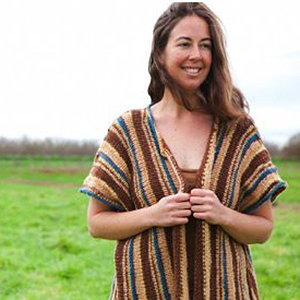 Rebecca Burgess, Executive Director of Fibershed, has been stimulating change in local communities through marketing and incentive programs to promote regenerative agriculture. The results have been inspiring - mills are opening, and regional interest in local and sustainable textiles has boomed. In this webinar, Rebecca brings her experience and expertise to discuss how farmers and ranchers can use the disruption of COVID-19 as a catalyst for their farm and ranch businesses by implementing regenerative practices.
Rebecca Burgess, Executive Director of Fibershed, has been stimulating change in local communities through marketing and incentive programs to promote regenerative agriculture. The results have been inspiring - mills are opening, and regional interest in local and sustainable textiles has boomed. In this webinar, Rebecca brings her experience and expertise to discuss how farmers and ranchers can use the disruption of COVID-19 as a catalyst for their farm and ranch businesses by implementing regenerative practices.
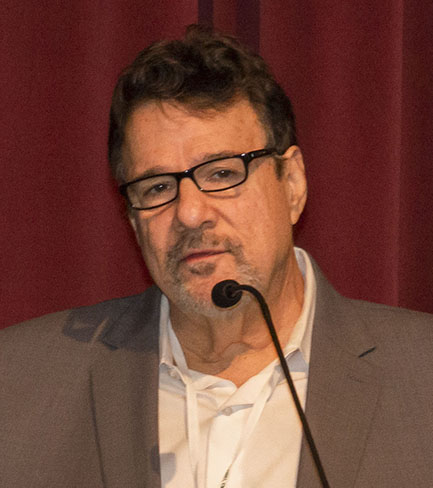 Larry Kopald, Co-Founder & President, The Carbon Underground
Larry Kopald, Co-Founder & President, The Carbon Underground
Larry Kopald shares how his organization, The Carbon Underground, accelerates the adoption of regenerative agriculture to draw down carbon and mitigate the climate threat. Throughout the talk he provides examples how the human race can take strides to reverse our carbon footprint and help save the planet from dying in the near future. Mr. Kopald is very passionate about saving the earth for future generations to enjoy. Learn how you can make a difference.
Recorded: March 29, 2019
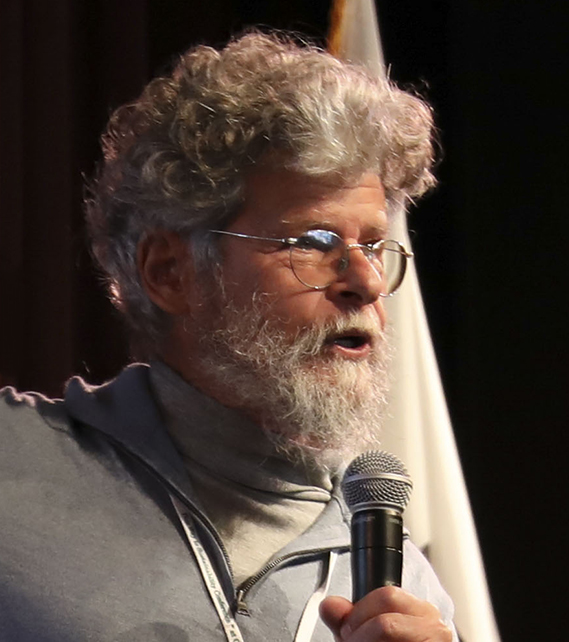 Thomas Goreau, President and Founder Global Coral Reef Alliance
Thomas Goreau, President and Founder Global Coral Reef Alliance
Dr. Thomas Goreau discusses biogeotherapy and how regenerating land and ocean ecosystems can help reverse climate change. Dr. Goreau is President of the Global Coral Reef Alliance, a non-profit organization for coral reef protection and sustainable management, and Coordinator of the United Nations Commission on Sustainable Development Partnership in New Technologies for Small Island Developing States. He shares his research and facts from his colleagues’ research to explain why biogeotherapy is vital for the future of the earth’s existence.
Recorded: March 29, 2019
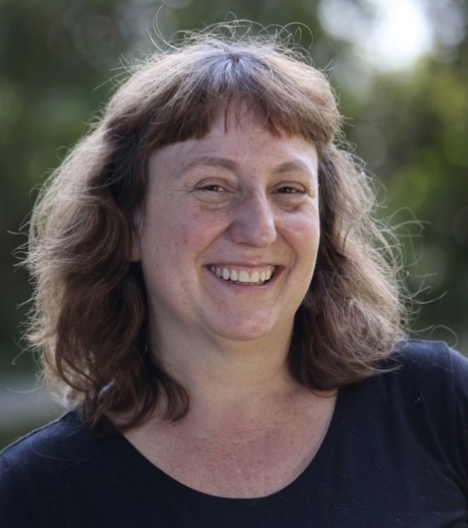 Alice Julier, Director of the Center for Regional Agriculture, Food, and Transformation (CRAFT), Associate Professor, and Director of Food Studies at Chatham
Alice Julier, Director of the Center for Regional Agriculture, Food, and Transformation (CRAFT), Associate Professor, and Director of Food Studies at Chatham
Grains play a major part in developing regenerative systems, particularly in the search for regionally-focused and perennial agriculture. While large companies like Patagonia and Annie’s Homegrown have made strides in supporting product development using these grains, their incorporation into local cuisine and food production is regionally specific and requires more concentrated energies, economic support, and cultural reinforcing. Using oral histories of immigrant bread and baking, agricultural asset mapping of food sheds, culinary tourism, and network development with farmers and bakers, Julier explores how we aim for a regenerative culture of food in the Pittsburgh region.
Recorded: March 29, 2019
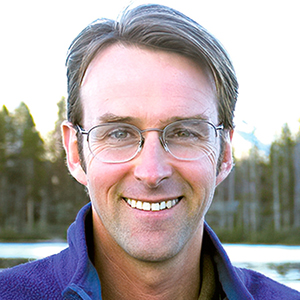 John Roulac, Founder of Nutiva, Environmental Advocate and Author
John Roulac, Founder of Nutiva, Environmental Advocate and Author
The world’s oceans are in peril. Overfishing and thousands of tons of garbage dumped into the ocean each year is causing severe stress. Even more profound is the impact of our carbon emissions, which have caused significant acidification and damage to marine life around the globe. Although the situation seems dire, Roulac is hopeful for a recovery, but only if we stop emissions NOW. The solution to this ecological and social disaster is just under our feet, i.e., our soil.
Recorded 10/4/18
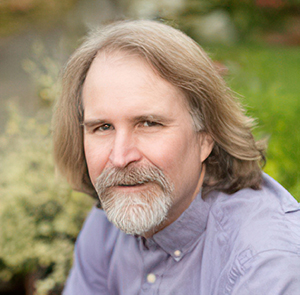 Dr. David Montgomery, Geomorphologist and Professor at University of Washington
Dr. David Montgomery, Geomorphologist and Professor at University of Washington
David R. Montgomery introduces us to farmers around the world at the heart of a brewing soil health revolution that could bring humanity’s ailing soil back to life remarkably fast. Cutting through standard debates about conventional and organic farming, Montgomery explores practices based on the principles of conservation agriculture already used on farms in both industrialized and developing worlds and how they help restore soil health and fertility. These Regenerative practices enable farms to use less water, generate less pollution, lower carbon emissions, and stash an impressive amount of carbon underground while saving the farmers money by being able to use less fossil fuel and fewer if any chemical fertilizers and pesticides. Montgomery lays out an inspiring vision where agriculture becomes the solution to environmental problems, helping feed us all, cool the planet and restore life to the land.
Recorded 3/15/18
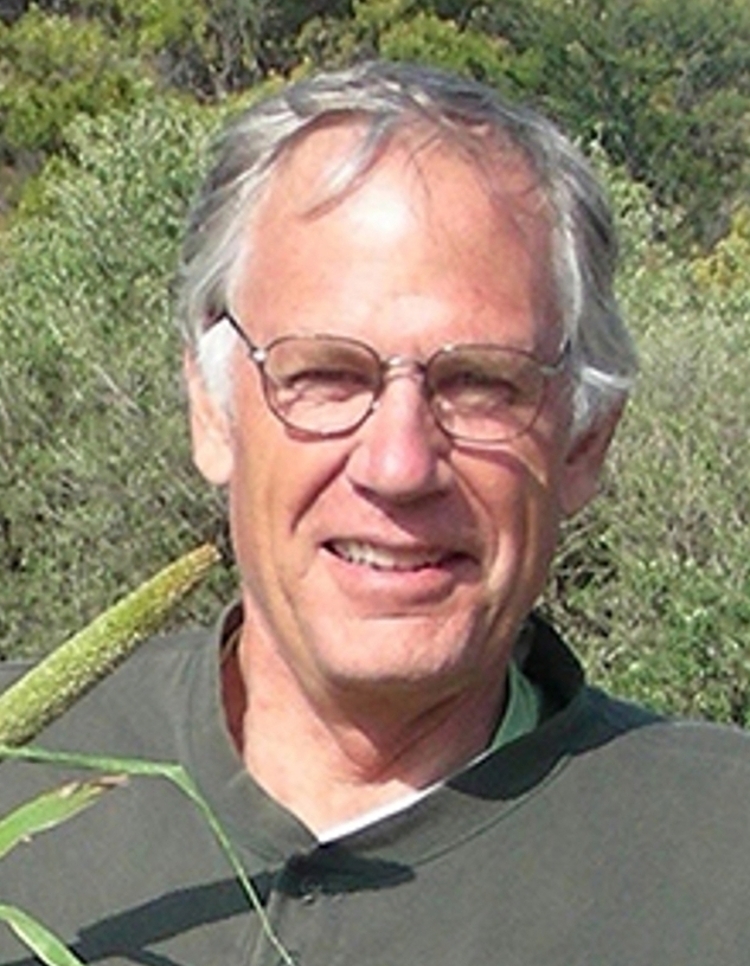 Dr. Tim LaSalle, Co-Founder & Co-Director, Regenerative Agriculture Initiative
Dr. Tim LaSalle, Co-Founder & Co-Director, Regenerative Agriculture Initiative
Tim LaSalle believes the three biggest challenges facing human survival on Earth are climate, hunger, and water. He discusses how Regenerative Agriculture could address all three through a combination of practices that stop soil erosion and degradation and build soil fertility while removing the carbon from the atmosphere that is leading to global climate change. LaSalle emphasizes that the situation is dire and action needs to be taken fast, but the potential Regenerative Agriculture offers is more than exciting. He uses several real world success stories to illustrate that point. Chico State’s current president wants the work of the Regenerative Agriculture Initiative to be part of her legacy. LaSalle lays out what that is expected to entail.
Recorded 3/15/18
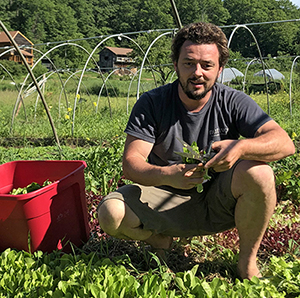 Dan Kittredge, Organic Farmer, Founder of the Real Food Campaign, Founder and Executive Director of the Bionutrient Food Association
Dan Kittredge, Organic Farmer, Founder of the Real Food Campaign, Founder and Executive Director of the Bionutrient Food Association
Dan Kittredge explains the connection between soil health, plant health and human health. He shares his own experiences with switching to Regenerative Farming and how it helps him grow more flavorful and significantly more nutritious foods with no pests, no diseases, with an improved shelf life at a lower cost and with less work. He advocates for low cost technology to help consumers make informed choices to help drive the industry through economic incentives. He also discusses the importance of a global open source data platform for farmers and others to share research from many different regions with different climates and growing conditions as well as the need for epidemiological studies.
Recorded 2/24/18
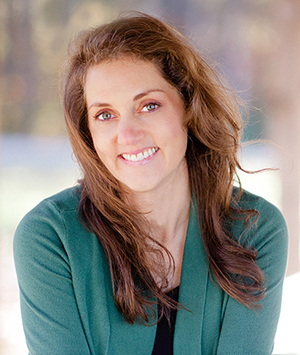 Dr. Sina McCullough, Author and Consultant
Dr. Sina McCullough, Author and Consultant
Dr. McCullough has a Ph.D. in Nutritional Science but despite her background, she developed a food-related autoimmune disease that progressed to the point of threatening her life. The disease prompted Dr. McCullough to launch a 5-year investigation into our food supply. What she learned eventually helped her reverse her disease without the use of medication. It also revealed how our food supply is making us sick, how this situation came about, and what ordinary people can do to stop it.
Recorded 2/24/18
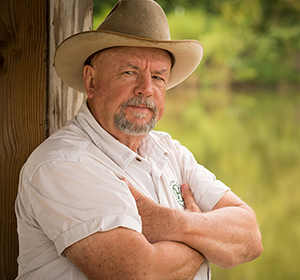 Will Harris, Owner/Rancher of Wild Oak Pastures
Will Harris, Owner/Rancher of Wild Oak Pastures
Will Harris shares his experiences as a fourth-generation cattleman who made the switch from industrial ranching methods to sustainable Regenerative Agriculture practices. In particular, he makes the point that Nature abhors a monoculture and now raises a wide variety of animals on land planted with a variety of grasses and trees. He honestly discusses the challenges he has faced over the years in regards to the complexity of this farming method and those caused by market forces driven by imports, loss of regulation, and multinational corporate policies. He discusses the need to focus on all three legs of a profitable strategy—production, processing and marketing as well—as how online direct-to-consumer marketing allows him to show animal welfare and earth-conscious consumers how what he is offering fits their values.
Recorded 2/24/18
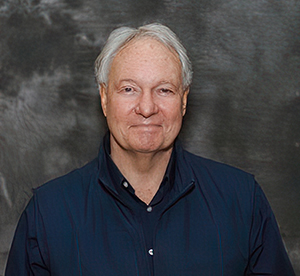 Dr. Richard Teague, Associate Resident Director and Professor, Texas A&M AgriLife
Dr. Richard Teague, Associate Resident Director and Professor, Texas A&M AgriLife
Dr. Richard Teague utilizes a systems approach to develop land and livestock management practices that sustain natural rangeland resources and the well-being of the people depending on the land. His research provides insight into the extent that grazing strategies influence key ecosystem services, the economic viability of working ranches that contribute to the retention of open space and rural community health in the Southern Plains of the USA, the extent that different grazing management strategies can be used by livestock producers to mitigate and adapt to alternative climate scenarios, and the long term economic consequences of using alternative grazing management strategies to achieve rangeland restoration and production goals.
Recorded 11/9/17
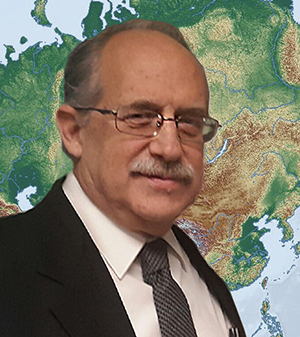 Dr. Roland Bunch, International Regenerative Agriculture Consultant & Author
Dr. Roland Bunch, International Regenerative Agriculture Consultant & Author
There is a serious drought in Africa, one in which more than 20 million people from Yemen to Tanzania are at risk of starvation. Surprisingly, explains Dr. Roland Bunch, the total amount of rainfall has not decreased, although global warming has made the timing of rainfall less predictable. He states that this drought is caused primarily by soils that can no longer infiltrate water because they have lost all of their organic matter. Farmers have such a small amount of land that they cannot set aside some of it to lay fallow. The chemicals used in conventional agriculture are too expensive for most Third World farmers, plus they feed the plant but do not feed the soil. Dr. Bunch presents Regenerative Agriculture as a solution because it increases both soil fertility and resilience to drought.
Recorded 9/7/17
 Dr. Timothy LaSalle, Co-Founder & Co-Director, Regenerative Agriculture Initiative
Dr. Timothy LaSalle, Co-Founder & Co-Director, Regenerative Agriculture Initiative
Too much carbon in the atmosphere heats our planet beyond capacity for it to sustain life as we know it. Too much carbon in the oceans makes them unfit for the life balances that have evolved through the millennia. Tim LaSalle believes that returning much of this lost carbon to the soil will not only mitigate the destructive aspects it causes in the atmosphere and the ocean, it will improve and cleanse water cycles, add fertility and life to the soils, and build climate resilience into farmed and grazed lands. He calls this life-giving, life-saving strategy, Regenerative Agriculture–farming and grazing practices that reverse climate change by rebuilding soil carbon levels while also restoring degraded soil biodiversity.
Recorded: March 23, 2017
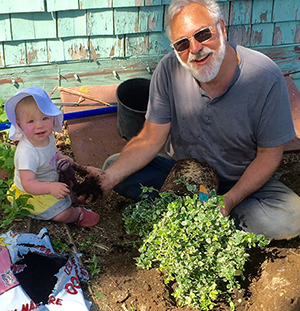 Tom Newmark, Co-owner of Finca Luna Nueva Lodge, Costa Rica and co-founder of the Carbon Underground and Regeneration International.
Tom Newmark, Co-owner of Finca Luna Nueva Lodge, Costa Rica and co-founder of the Carbon Underground and Regeneration International.
After a short introduction, Tom Newmark’s presentation focuses on how modern agricultural practices impact climate change and food security. He suggests that the worst mistake we as a species has made was losing our relationship to the ecosystem in our food production. At this point we don’t just have a climate change problem. We also stand to lose all our topsoil worldwide in 60 years and have severe water shortages by 2030 almost entirely because of losing organic matter in the soil through the use of synthetic nitrogen fertilizer, monoculture, tilling and chemical herbicides. Newmark describes how Regenerative Agriculture provides a solution for all these problems with inspiring examples of the dramatic gains already made on farms currently using these methods.
Recorded: March 23, 2017
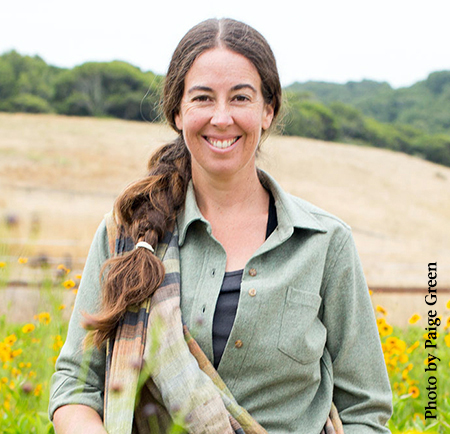 Rebecca Burgess, Founder and Executive Director of Fibershed, Chair of the Board Carbon Cycle Institute, Author and instructor at Westminster College and Harvard University.
Rebecca Burgess, Founder and Executive Director of Fibershed, Chair of the Board Carbon Cycle Institute, Author and instructor at Westminster College and Harvard University.
Rebecca Burgess takes the discussion of Regenerative Agriculture beyond food production and into the area of sustainable, carbon negative, non-exploitative clothing. She proposes Soil to Soil methods of garment production in localized geographic regions—building the soil faster than it is depleted, growing the crops, spinning the fibers that are woven into material, and making garments that can be returned to the soil when used up to make compost. She shares the challenges and the potential benefits behind her nonprofit mission of developing regional fiber systems that build soil & protect the health of our biosphere.
Recorded 2/9/17
